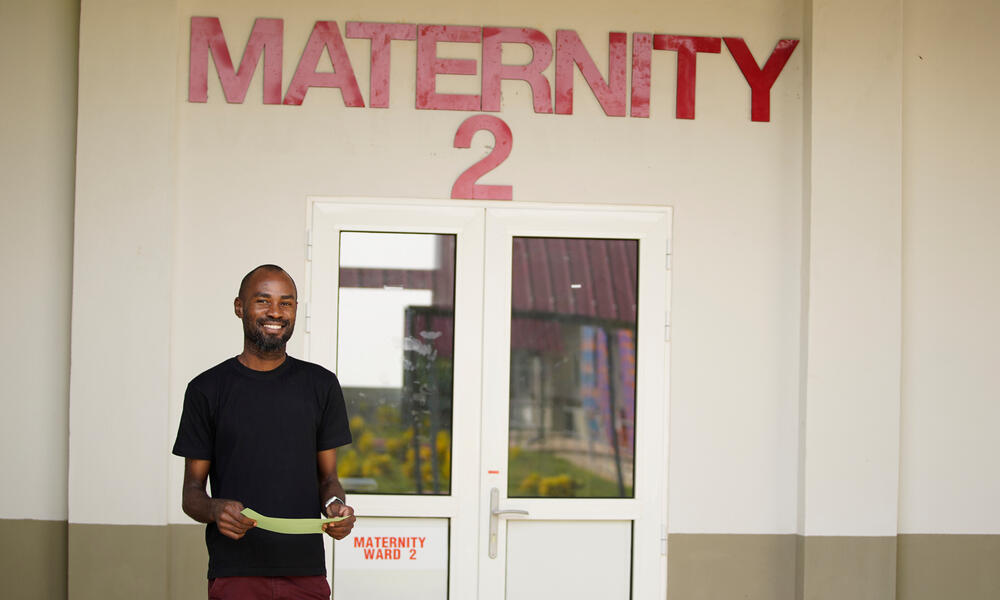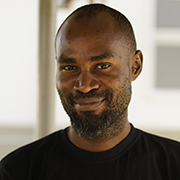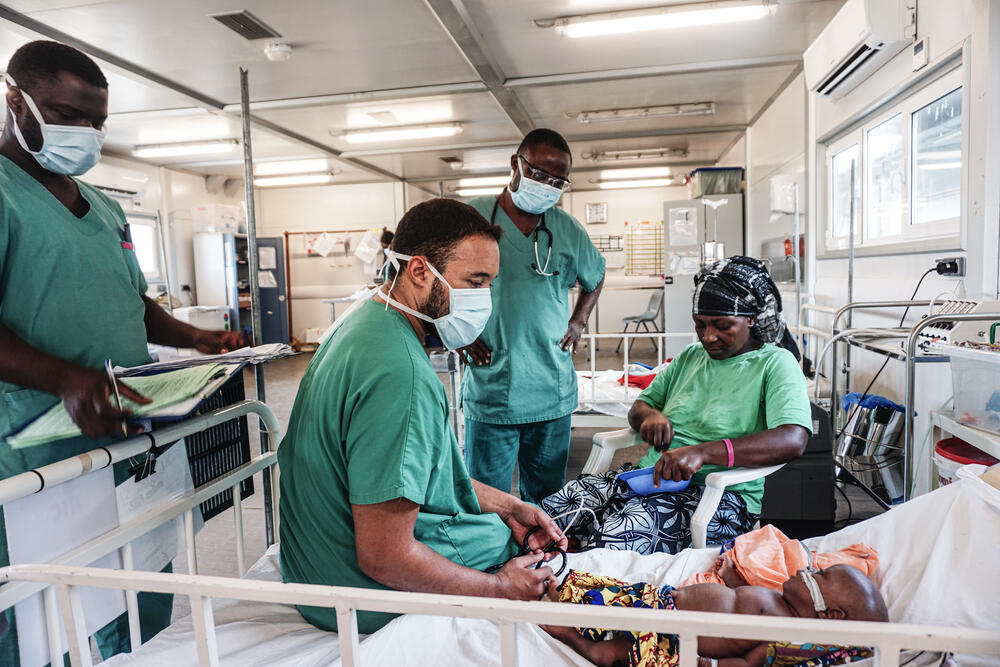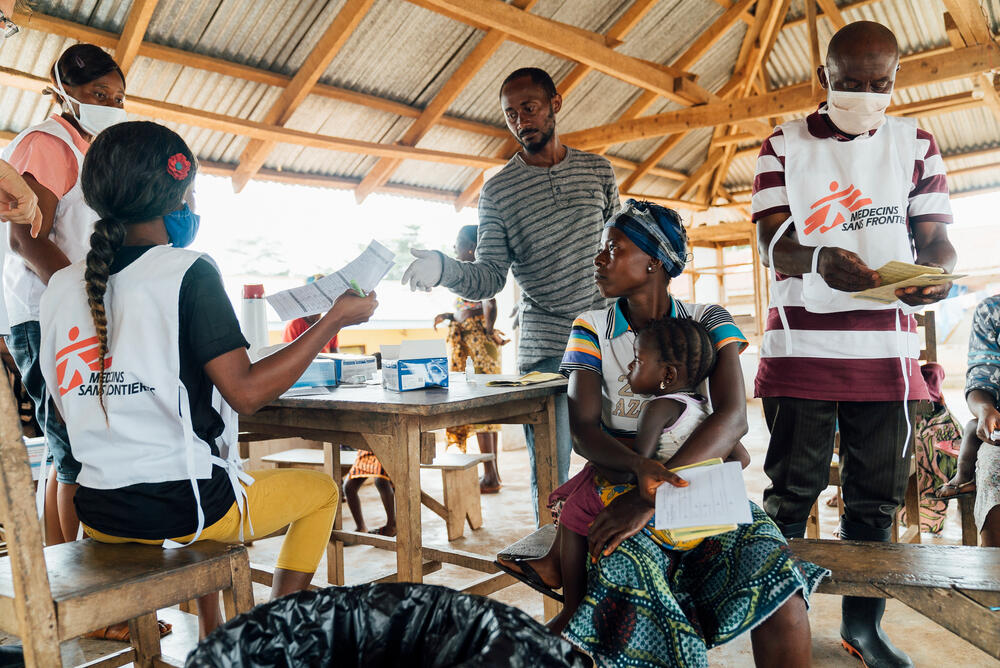Epidemiology: How data analysis can help save lives
With the outbreak of the COVID-19 pandemic, millions of people around the world became aware of public health specialists known as 'epidemiologists'. But what do they actually do?
Louis Bahina Essengue, an epidemiologist with Médecins Sans Frontières / Doctors Without Borders (MSF), explains how using expert analytical skills and a lot of data can help understand a healthcare crisis. And, crucially, where it can empower medical teams to make a difference.
For the past four years, I have been working as an epidemiologist with Médecins Sans Frontières / Doctors Without Borders (MSF).
Despite the fact that I come from Yaoundé in Cameroon, I have not spent much time at home since I began my career with MSF. Instead, I’ve worked in Niger, Bangladesh and Guinea.
“Surveillance of diseases is central to my work – analysing the data to spot changes or outbreaks”
It had barely been four weeks since I had greeted my family in Cameroon after returning from Guinea, and I was already preparing to say goodbyes when I was offered the position as an epidemiologist in Sierra Leone.
I started thinking about the new challenges I would face, and the new people I would meet and work alongside. I began to imagine what my new home would be like.
Kenema
In Sierra Leone, I am based in the Kenema project where I have now been working for more than one year.
Kenema is home to Hangha Hospital, a large paediatric hospital of around 100 beds. This incorporates a feeding centre for patients with malnutrition, an intensive care unit, an inpatient department, the emergency room and an isolation unit.
There are two main components of activities in place here: the hospital and the outreach programme.
Every day, the hospital staff care for patients in a critical condition, mainly related to malaria, pneumonia and severe malnutrition. The nurses and medical staff strive to provide each patient with a high standard of care and treatment, delivered according to MSF standards.
Meanwhile, the outreach team works with local communities, meeting them where they live to share important information about health and services.
But to make the right decisions – about things like where we need to concentrate our efforts, changes we need to make, or how we can prepare for new medical needs – the teams need reliable data.
My role
As the epidemiologist here, I support the entire hospital and outreach team with data management and analysis. I calculate ‘health indicators’ like mortality rate, bed occupancy rate, length of stay of patients admitted to our hospital and more.
I analyse data from the different strands of our work, so we know if we are achieving our targets or not, helping management to spot any problems or to celebrate successes. I also do surveys and assessments, which help to identify areas that need attention and contribute to decisions about the project.
Surveillance of diseases is central to my work – analysing the data to spot changes or outbreaks. It’s also central to the team, allowing them to receive punctual alerts and organise a timely response if required. That could mean anything from a vaccination campaign, a new treatment facility, or health promotion teams working with the community to reduce the transmission of disease.
Whilst I often work behind the scenes, improving patient care and outcomes is at the heart of everything that I do.
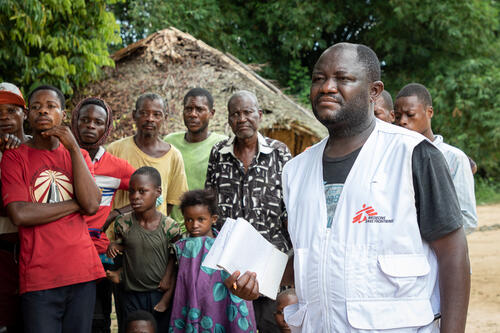
Data challenges
One of MSF’s goals in Kenema is to build capacity among local healthcare staff, so part of my role involves transferring skills and knowledge.
I provide training on how to properly complete registers and forms to ensure that patient information is recorded accurately.
“Simply feeling that you are doing a good job may be nice but having the data to prove it is much better”
Data management can be a challenge when caring for critically ill patients. Staff are not always able to properly complete patient registers, which are the primary sources of data collection in the hospital.
Alongside my team, composed of a data supervisor and four data encoders, I closely monitor and support the hospital staff to ensure the quality of data recorded and to see that patient confidentiality is maintained.
Being meticulous and vigilant is key to ensuring data is analysed accurately: even small errors have the potential to affect decisions made about the wider project. My skills in Excel, Word and computer sciences help me daily to improve the quality of reporting.
I create templates for reporting and data collection. And, on a monthly and quarterly basis, I work with the hospital and outreach managers to review activity indicators. Together, we compare the target originally set with what has been achieved and agree on recommendations for the next quarter.
Disease surveillance
Disease surveillance is an important part of what I do, including notifiable diseases such as measles and meningococcal meningitis. These diseases can spread quickly and are particularly dangerous for young, unvaccinated children. So, spotting outbreaks early is key to saving lives.
Kenema is also an endemic area for Lassa fever, a viral haemorrhagic disease spread by rats.
I support the hospital team with reporting cases to the Ministry of Health and Sanitation (MoHS), as well as tracing people who may have been in contact with a suspected Lassa fever patient so that they can be tested. My work also helps with the shipment of test samples, which is not always a simple task.
It’s vital to maintain a positive collaboration with the authorities and to ensure they are well informed of our activities, particularly for ‘priority’ diseases. This helps to improve the quality of the partnership between MSF and the MoHS, and I have a good relationship with the surveillance officer with whom I meet weekly for updates.
I am always using the data collected to monitor what’s happening in local communities. For example, I follow the number of diarrhoea and malaria cases in order to flag where environmental health activities need strengthening.
Doing a good job
I’m constantly looking for ways in which MSF can increase support to the community to improve the health of local people.
Ensuring high data quality and reporting is the essence of what I do, working under pressure to meet strict deadlines. One of the really positive aspects of this is getting to reflect on the hard work of the MSF team here.
Through our reporting, we highlight the support we are providing to the MoHS and the difference we are making to the lives of those in the Kenema district.
Simply feeling that you are doing a good job may be nice but having the data to prove it is much better.
MSF in Sierra Leone
In 2014, Sierra Leone seemed as though it was finally putting its brutal, decade-long civil war behind it. The West African country was enjoying substantial economic growth when, in May 2014, it was faced with another disaster: Ebola.
Access to medical care in Sierra Leone was already limited before the Ebola epidemic and it is estimated that around 10 percent of the country’s health workers were among the 3,950 people killed by the virus.
Sierra Leone was finally declared Ebola-free on 17 March 2016 and is now struggling to rebuild its shattered health system.
